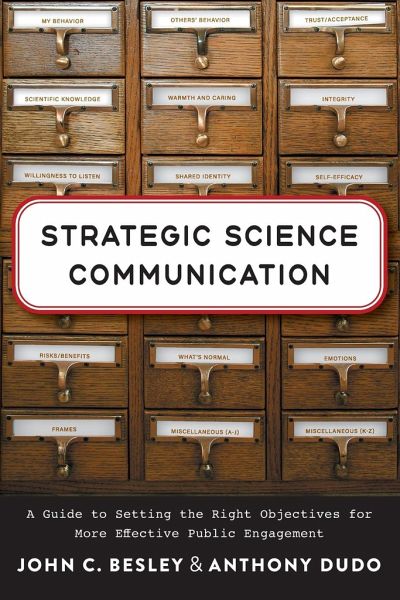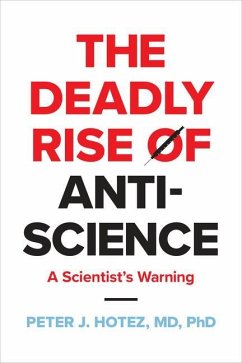
Strategic Science Communication
A Guide to Setting the Right Objectives for More Effective Public Engagement

PAYBACK Punkte
14 °P sammeln!
What tactics can effective science communicators use to reach a wide audience and achieve their goals? Effective science communication--the type that can drive behavior change while boosting the likelihood that people will turn to science when faced with challenges--is not simply a matter of utilizing social media or employing innovative tactics like nudges. Even more important for success is building long-term strategic paths to achieve well-articulated goals. Smart science communicators also want to create communication opportunities to improve their own thinking and behavior. In this guideb...
What tactics can effective science communicators use to reach a wide audience and achieve their goals? Effective science communication--the type that can drive behavior change while boosting the likelihood that people will turn to science when faced with challenges--is not simply a matter of utilizing social media or employing innovative tactics like nudges. Even more important for success is building long-term strategic paths to achieve well-articulated goals. Smart science communicators also want to create communication opportunities to improve their own thinking and behavior. In this guidebook, John C. Besley and Anthony Dudo encapsulate their practical expertise in 11 evidence-based principles of strategic science communication. Among other things, science communicators, they argue, should strive to seem competent, warm, honest, and willing to listen. Their work should also convey a desire to make the world a better place. Highlighting time-tested methods for building rapport with an audience through several modes of communication, Besley and Dudo explain how to achieve each strategic objective. All scientific communication is goal-oriented, and Besley and Dudo discuss the importance of recognizing the right goals, then employing strategic and tactical communication in order to achieve them. Finally, they offer specific suggestions for how practitioners can evaluate the effectiveness of their communications (and in fact, build evaluation into their plans from the beginning). Strategic Science Communication is the first book to use social science to help scientists and professional science communicators become more evidence-based. Besley and Dudo draw on insightful research into the science of science communication to provide readers with an opportunity to think more deeply about how to make communication choices. This guidebook is essential reading for all professionals in the field.














